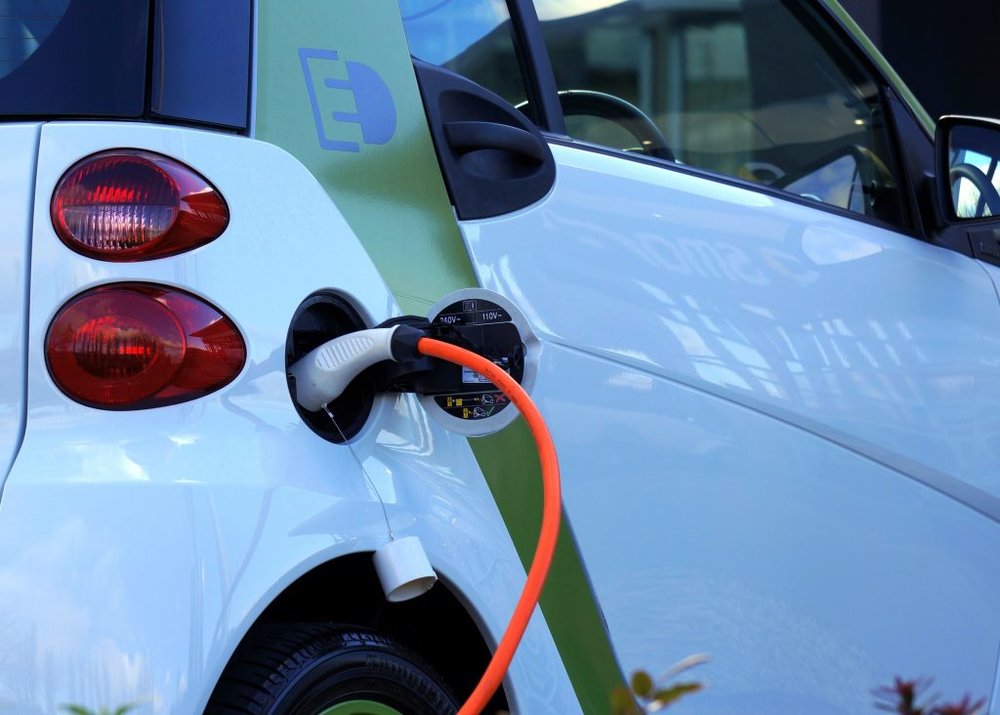In a welcome move by many, German automobile giants, Volkswagen, and popular grocery store, Tesco have ganged up to create the largest biggest the largest free electric car charging network in the UK.

While announcing the new partnership, the two firms revealed that they were expecting to install at least 2,500 charging points across 600 Tesco store parking lots in the United Kingdom.
Mike Orford, a renowned Volkswagen U.K. board member, shared with reporters over the phone that the company was looking to motivate people to embrace electric vehicle ownership. In his call, he divulged that the convenient location of the charging points would go a long way towards assuaging some of the fears people may have about the when and where cars need to be charged.
More specifically, he mentioned that people residing in flats who don’t have the luxury of home parking since they park in the streets are going to be part of the target audience. How so? Because the Tesco charging point option is quite viable thanks to the retailer’s large presence in the UK.
Looking Up
Impressively, newly released data by the Society of Motor Manufacturers and Traders (SMMT) shows that there are currently more than 120,000 vehicles running on alternative fuels in 2018. Most notably, this figure represents a significant 22 percent spike when reviewing the number of alternative fueled vehicles in the UK over the last year.
The collaboration between the two companies is set to be a game changer in that their customers will be exposed to a number of charging options. In larger Tesco sites, customers will have the option of 50 kilowatts (kW) pay-as-you-go charger or the free fast charge 7kW charger.

In his address, Orford pointed out that it was not necessary for people to be Tesco customers in order to access the charging points.
He shared that people would be free to stroll right in and out as they please to charge their automobiles. However, he did mention that the parking bays would observe the same monitoring system as the typical mother and baby or disabled spots.
As key players in the automobile industry, Volkswagen is optimistic that their charging points will become popular with Tesco shoppers. Ideally, the charging bays are going to be compatible with most other electric car brands.
The two companies, Tesco and Volkswagen are expectedly going to both handle the financial commitments of the enterprise. When prompted by reporters to reveal the monetary aspect of their collaboration, both companies declined to comment and only settled with revealing that it was a multi-million-pound deal.
Excitingly, Volkswagen expects their VW brand to sell at least a million electric cars per annum by 2025. The automobile makers have shared that plans currently underway for them to meet this target with investments made to the tune of $50 billion €44 billion.
These funds will be largely focused on the development of electric cars, new mobility services and the expansion of autonomous driving capabilities. All of which are realistic targets set to be achieved by 2023.
Broadening Horizons
Just last week on Wednesday, Volkswagen revealed that plans were currently underway for them to open up shop in North America. The new factory is expected to be focused purely in the building of electric vehicles for the American market.
In Canada and the US, there are currently only about 22,000 electric charging stations. These charging points are largely classified as being either DC fast charging and level 2 systems. The key distinction between these two charging points lies in the distance covered. Fast charging stations typically guarantee between 60 and 80 miles of travel for about 20 minutes of charging time.

Unsurprisingly, Fuel Economy estimates that there are more than 168,000 gas stations. Compared to the number of electric charging points, this number is about 7 times more.
Volkswagen are looking to position themselves as leaders in the electric vehicle market by installing about 2,800 electric charging stations in American cities by June 2019. The electric charging points are set to be evenly distributed in the top 17 U.S. cities at the cost of about $2 billion. This deal is viewed by analysts as part and parcel of the company’s settlement with Dieselgate.
The Tesla and Volkswagen collaboration is not completely unique in the electric vehicle market. Most other automakers have been known to partner up with other networks in a bid to expand their reach.
There seems to be a reliance on the broad networks provided by third-party companies, utilities, and governments because of the relatively cheaper costs involved. While that’s a dandy concept, it does leave these automobile companies at a disadvantage since they’re going to have less control over their product and there’s less certainty for success.










